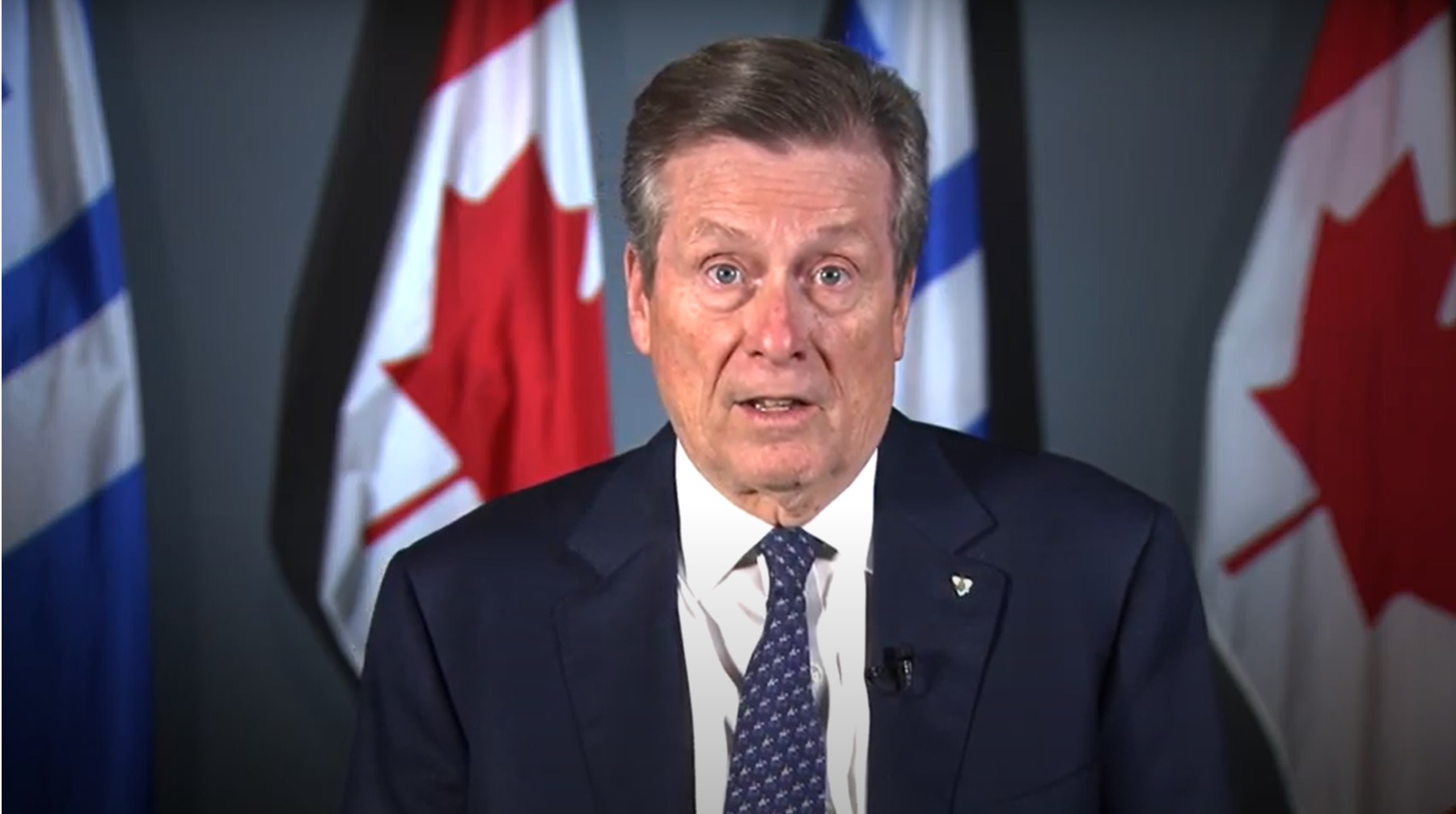Canada News
The news about Toronto Mayor John Tory’s affair destroyed his carefully cultivated public image

An hour later, he had announced his resignation, and by the end of the following week, he was gone from the mayor’s office. (Screengrab via Mayor John Tory/Youtube)
The Toronto Star broke news on Feb. 10 about Mayor John Tory’s extramarital affair with an employee in his office. An hour later, he had announced his resignation, and by the end of the following week, he was gone from the mayor’s office.
Sex scandals are nothing new in the world of politics. Many politicians have survived such scandals and held onto their jobs. These types of scandals are usually considered to be legal, minor and mostly personal indiscretions that don’t impact the ability of government officials to do their jobs.
What is interesting about the Tory case is how drastic and sudden the impact of the affair was. Why did the reports of Tory’s affair have such a shocking and impactful effect on his leadership? Why, in other words, has it brought an end to the now former mayor’s life as a politician?
Tory’s public image
Tory, while not commanding an enthusiastic following, was certainly not an unpopular politician at the time of his resignation. Just four months earlier, Tory easily won re-election as mayor. He is the only mayor of Toronto to receive a third consecutive term since the amalgamation of Toronto’s six boroughs.
In both the 2018 and 2022 contests, Tory’s hold on power was demonstrated by the fact that, while having many detractors, no popular or united oppositional movement provided any sort of genuine challenge to his leadership.
Academic research has shown that a large part of leadership is transactional, meaning that leaders are given their positions of authority because they can present aspects of their personal characteristics to establish and maintain specific expectations among voters. Put another way, leadership is as much about maintaining a successful brand as it is about policy outcomes.
Ultimately, Tory’s success emerged from the way that he was able to establish himself as a competent, effective and practical administrator with a plethora of good judgment. As a result, he could provide Torontonians with an imperfect, but tolerable sense of stability through specific goods.
These goods included, among others, the goods of necessary infrastructure development, adequate municipal services and fiscal responsibility without a significant increase in taxes. Tory is also credited with leading a very capable response to the COVID-19 pandemic.
To put it another way, Tory was — at the very worst — boring.
The calm after the storm
Tory’s boring was a good kind of boring. Toronto municipal politics — since the 1998 amalgamation that merged downtown Toronto with each of the city’s inner suburbs to form one “mega-city” administration – has often been contentious and ideologically charged.
City council and the mayor’s office have come to reflect the divergent interests and voting patterns of the more conservative, working-class suburbs and the progressive, educated downtown core.
Toronto politics has been populated by a number of acrimonious, larger-than-life personalities. We might recall, for instance, the gaffe-prone nature of former mayor Mel Lastman, city councillors Giorgio Mammoliti and Gord Perks who were known for their theatrical shouting matches, or the scandal-prone former mayor Rob Ford.
As an exception rather than a rule, Tory will always be remembered as the mayor that stabilized the municipal government following the disorder, comedy and scandal of the Ford years.
With Tory’s departure, there are indications that this tendency towards political contention will re-emerge. The city’s suburban and downtown populations continue to be divided over the province’s initiatives surrounding “strong mayor” legislation, transportation infrastructure and housing developments in the Greenbelt.
The secure hold on power enjoyed by the Progressive Conservatives at Queen’s Park suggests the emergence of an insurgent, populist left-wing counter reaction. At the same time, growing concerns related to the breakdown of law and order may help elect right-wing candidates, as in Vancouver.
Tory’s moderation meant he was often caught in the middle. Conservatives attacked the mayor for failing to address issues related to crime and maintaining red tape that limited infrastructure development. Progressives attacked him for underfunding city services related to transit, maintenance and housing.
The nail in the coffin
Tory left office in the midst of an ongoing opioid and homelessness crisis, deteriorating public safety and issues with housing affordability.
The reality is that, while mostly popular, Tory relied predominately on his public image as a competent city manager to maintain support. He had to assure Torontonians that his leadership, while not perfect, was at the very least sound and characterized by good judgement.
Tory’s affair, however, immediately broke down and delegitimized this carefully crafted image. This is because, more than anything, it demonstrated a substantial error of judgment and lack of integrity. The basis of Tory’s public image meant the affair became inherently political, despite it being a personal issue.
Outside whatever personal impact the situation has had on Tory’s family and marriage, the power imbalance of the relationship also complicates matters. Sixty-eight year old Tory’s relationship was with a 31 year old professional subordinate, raising questions about consent and power differentials. There are a number of unanswerable concerns over how the mayor understood, used and made decisions in light of his position of authority.
In the face of all this, there were few remaining factors or strengths the mayor could rely on to weather the storm. While some did defend Tory and argue he should stay on as mayor, nobody was able to point to a set of policy accomplishments or goals that, after nearly ten years and a worsening city environment, outweighed the assassination of Tory’s character.![]()
Sam Routley, PhD Student, Political Science, Western University
This article is republished from The Conversation under a Creative Commons license. Read the original article.





















